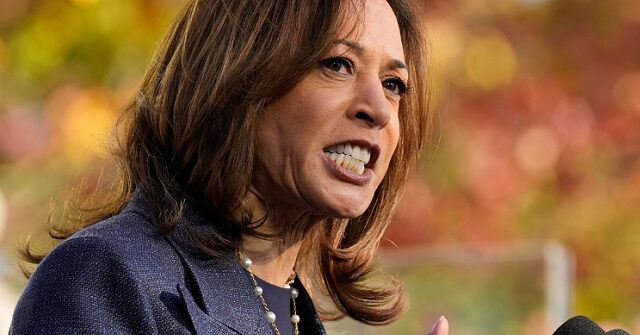On an episode of HBO’s “Real Time” last Friday, host Bill Maher critiqued Vice President Kamala Harris’ responses during her recent interview with Fox News. Maher suggested that Harris relies too heavily on the defense “Trump is worse” whenever her actions come under scrutiny. He emphasized that she would benefit from taking a more proactive approach by acknowledging the need for improvement in specific areas, such as border security, stating that she should admit the administration’s shortcomings and express a commitment to do better in the future. This perspective highlights how, in Maher’s view, effective political communication involves not only defending one’s record but also owning up to mistakes and outlining plans for change.
Maher underscored the pivotal role of candidate perception in the upcoming election, arguing that unlike Donald Trump, who has established a distinct and recognizable coalition of supporters, Harris remains poorly defined in the eyes of undecided voters. He noted that Trump’s coalition includes individuals who genuinely support him and those who, despite his flaws, consider him a preferable option to what they perceive as “far-left insanity.” This situation places Harris at a disadvantage, as the general public is interested in understanding her stance and vision rather than merely hearing about the flaws of her opponent. Therefore, Maher posits that it is crucial for Harris to present herself more clearly and assertively to attract undecided voters.
Maher pointed to a specific vulnerability in Harris’s campaign narrative, particularly around controversial statements made in the past. He referenced a question posed to her about her support of taxpayer-funded sex reassignment surgeries for incarcerated individuals—a topic that has polarized opinion and is indicative of broader concerns about the Democratic Party’s alignment with various leftist positions. He argued that for many voters, particularly those leaning conservative or moderate, the perception that Harris aligns with the more extreme aspects of her party could prevent them from supporting her. Thus, Maher emphasized the necessity for Harris to articulate a clear disavowal of fringe positions that may alienate potential voters.
In his commentary, Maher expressed frustration with Harris’s recent remarks where she stated that she wouldn’t change anything from the Biden administration’s handling of the last three years. He contended that this kind of answer is inadequate in a political climate eager for accountability and growth. Maher urged that a more effective response would acknowledge the successes of Biden’s administration while also admitting to specific areas where improvements could have been made, such as immigration policy. Such an approach would not only engage voters but also demonstrate Harris’ willingness to reflect on past decisions critically.
Maher’s commentary reveals a broader concern regarding the strategic communication employed by political figures, particularly in the face of challenges and criticism. By framing the conversation around accountability, he highlights the necessity for politicians to provide thoughtful and substantive responses to voter concerns rather than defaulting to familiar but ultimately insufficient defensive strategies. This expectation aligns with voters’ desire for genuine leadership that can navigate complex issues with honesty and clarity of vision.
In conclusion, Maher’s analysis of Harris’s interview and her overall campaign strategy underscores the complexities of contemporary political discourse, particularly as it relates to connecting with undecided voters. As the election approaches, he stresses the importance of not only defending against criticism but also proactively addressing public concerns with nuanced solutions and a clear vision. In an era where voters are increasingly discerning, the success of a candidate may depend on their ability to articulate their values and proposals in a way that resonates deeply with potential constituents.

